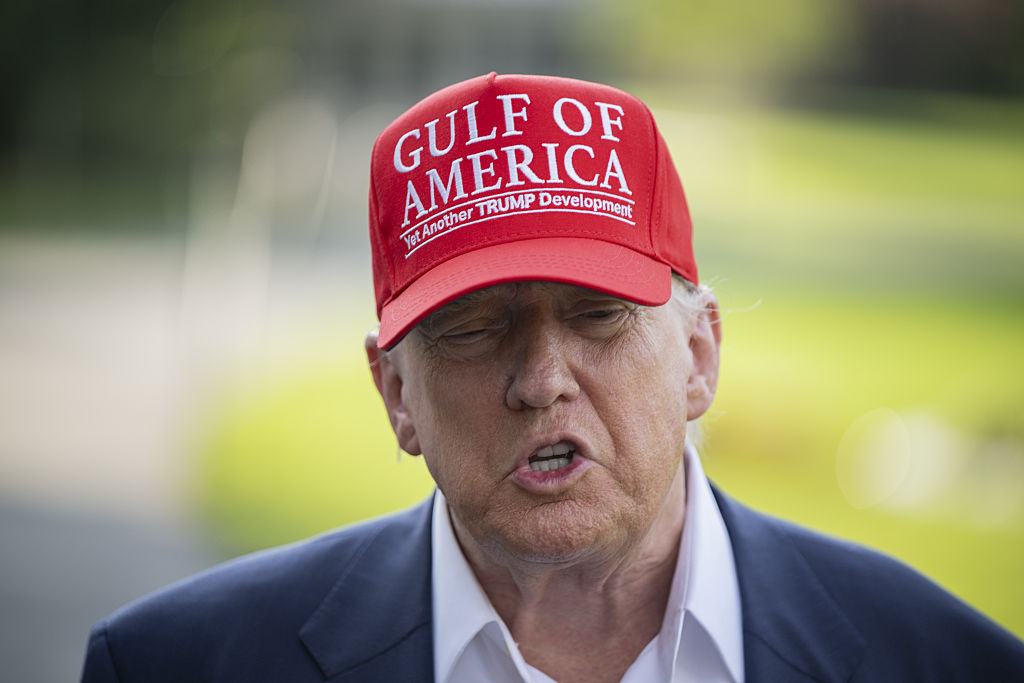Donald Trump sent a letter to the EU on Saturday announcing a 30% tariff on EU products imported to the US – well above what Brussels had anticipated – effective from 1 August. Separate tariffs for specific sectors – such as steel and aluminium, and cars – are already in place.
“Understand that the 30% number is far less than what is needed to eliminate the Trade Deficit disparity we have with the EU,” reads the letter, which adds that there will be no tariffs for EU companies that carry out production in the US.
EU officials had hoped no letter would come – but that they would instead clinch an “agreement in principle” like the one the US struck with the UK in May, which kept the 10% baseline while softening car and metal duties.
Trump also threatened to increase tariffs further if the EU chooses to retaliate. “If for any reason you decide to raise your Tariffs and retaliate, then, whatever the number you choose to raise them by, will be added onto the 30% that we charge.”
EU ambassadors will convene an extraordinary meeting on Sunday at 15:30 to discuss the measures, an EU diplomat said.
Following the announcement, Commission President Ursula von der Leyen said that a 30% tariff would “disrupt essential transatlantic supply chains, to the detriment of business, consumers and patients on both sides of the Atlantic.”
“Few economies in the world match the European Union’s level of openness and adherence to fair trading practices,” she added, noting that the EU remains ready to continue working towards an agreement by 1 August.
However, von der Leyen said the EU would take “all necessary steps” to safeguard the bloc’s interests, including countermeasures “if required”.
European Council President António Costa said that the “EU remains firm, united and ready” to protect its interests, and supported von der Leyen’s efforts to reach an agreement with the US.
The Commission had already been informed of Trump’s move before Saturday’s announcement, an EU official told Euractiv.
The EU has already drawn up a retaliatory package targeting €21 billion worth of US goods – including diamonds, soybeans, and motorbikes – currently suspended until Monday 14 July. EU trade ministers will meet in Brussels that day to discuss transatlantic trade relations, including whether to extend the suspension.
Foreign ministers could also weigh in on Tuesday at a meeting of the Foreign Affairs Council, an EU official told Euractiv, noting that while US tariffs are not currently on the agenda, that could change. Ministers are expected to discuss EU-China relations ahead of a key summit later this month, but Trump’s larger-than-expected tariffs may shift the dynamics, an EU diplomat added.
Brussels is also preparing a separate €95 billion list that could affect US aircraft, spirits, and electrical equipment.
Political back and forth
The letter comes after months of political and technical negotiations between EU and US officials over Trump’s sweeping “reciprocal tariffs”, which upended the global economy and financial markets before being suspended shortly after their announcement on 2 April.
Trump’s 50% duty on steel and aluminium, 25% tariff on cars and car parts, and 10% baseline levy on most other goods currently affect €370 billion worth of EU goods – or 70% of the bloc’s total exports to the US.
He also said on Wednesday that a 50% tariff on copper will become effective on 1 August, the same day that the reciprocal levies on US trading partners are set to enter into force.
A day earlier, Trump suggested he would send a letter to the EU later this week similar to the ones delivered to numerous other US trading partners over the past few days, which have broadly matched the duties imposed in April. Trump has previously threatened to hit the bloc with a reciprocal levy of between 20% and 50%.
“My understanding is that we are not going to receive a letter,” Olof Gill, Commission spokesperson for trade, said on Wednesday.
*Alexandra Brzozowski contributed reporting
(mm, ow)
